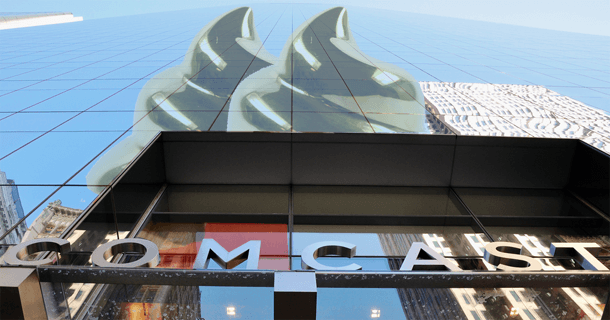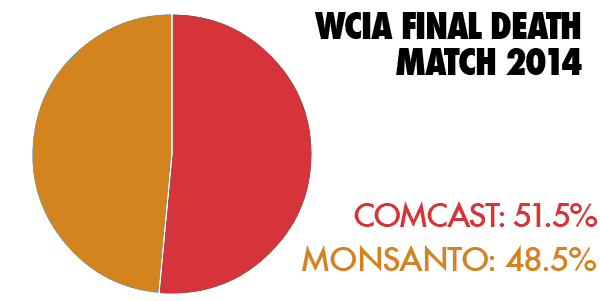
Comcast says you must have the option to pay more for the same broadband service you already get, only now with an allowance
Comcast has announced it is considering testing an innovative new plan in several test markets offering “unlimited Internet access” to customers for a yet-to-be-determined price. Whoever heard of such a thing?
Comcast’s executive vice president David Cohen raised eyebrows last week when he predicted all Comcast customers nationwide would see usage-based billing for their Internet access within five years.
Such statements tend to muck up things like a $45 billion dollar merger with Time Warner Cable that both companies must prove is in the public interest. The buyer wants to limit your Internet usage and the seller got its fingers burned back in 2009 when it tried its own usage cap experiment and now advertises it has no data caps.
Telling Time Warner Cable customers it is in their best interest to lose unmetered Internet plans may be too tough to sell, so Cohen has spent much of this week backtracking and claiming he was “misunderstood:”
To be clear, we have no plans to announce a new data usage policy. In 2012, we suspended our 250 GB data cap in order to conduct a few pilot programs that were more customer friendly than a static cap. Since then, we’ve had no data caps for any of our customers anywhere in the country. We have been trialing a few flexible data consumption plans, including a plan that enables customers who wanted to use more data be given the option to pay more to do so, and a plan for those who use less data the option to save some money. We decided to implement these trials to learn what our customers’ reaction is to what we think are reasonable data consumption plans. We certainly have no interest in adopting any plans that our customers find unreasonable or disruptive to their Internet experience.
It’s important to note that we remain in trial mode only. We’re now also looking at adding some unlimited data plans to our trials. We have always said that as the Internet, and our customers’ use of it, continues to evolve, so will Comcast and our policies.
Cohen makes a careful distinction between a strict usage limit and the kind of usage-based billing that will fill the company’s coffers with overlimit fees. But any usage allowance is a limit of how much you can use the Internet before something bad happens — either your access is shut off or your bill explodes.
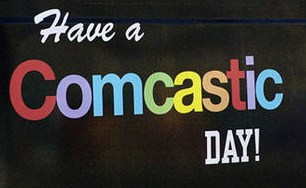 Stop the Cap! has talked with more than a dozen customers in Comcast’s test markets about their experiences with Comcast’s “data usage policy.” Although the company claims it is seeking customer reactions, it never asks whether those customers want usage limits or not, only what kind.
Stop the Cap! has talked with more than a dozen customers in Comcast’s test markets about their experiences with Comcast’s “data usage policy.” Although the company claims it is seeking customer reactions, it never asks whether those customers want usage limits or not, only what kind.
Giving customers “the option to pay more” is exactly the type of thinking that won Comcast the dubious distinction of being the worst company in America. No usage plan tested by Comcast actually offers savings to customers. It simply places an artificial, arbitrary usage allowance on the overpriced broadband service the company offers now.
At this point, Comcast is not offering any unlimited use trials, but we have learned the value they are likely to place on “unlimited” based on what certain customers have paid all along for that privilege. Ars Technica reports some avoided the 250GB cap by signing up for business class service. The cost? $133.79 a month for 50/10Mbps. If Google Fiber was in town, you’d pay $70 for unlimited 1,000/1,000Mbps service, and the search engine giant would still be making money.
Cohen claims nothing is set in stone, but considering Comcast’s “don’t care” attitude towards its customers, it is a safe bet they will do what is best for shareholders and ignore complaints from customers that often have nowhere else to go for 21st century broadband speeds.


 Subscribe
Subscribe
 One way to prove the merged company would not offer better service is to alert the Commission Comcast plans to reimpose usage caps on its customers while Time Warner Cable does not have any compulsory usage limits or usage billing.
One way to prove the merged company would not offer better service is to alert the Commission Comcast plans to reimpose usage caps on its customers while Time Warner Cable does not have any compulsory usage limits or usage billing.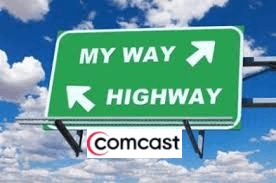 Comcast will introduce usage-based billing on all of its broadband customers nationwide within five years, whether they like it or not.
Comcast will introduce usage-based billing on all of its broadband customers nationwide within five years, whether they like it or not.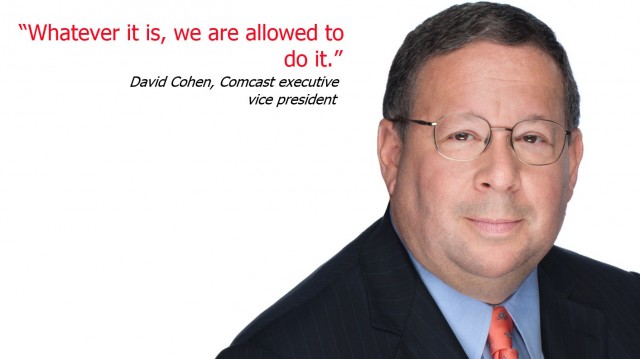 If the merger is approved, Comcast will face significantly less competition in many Verizon service areas also served by Time Warner Cable. Verizon FiOS expansion has ended and the company continues to de-emphasize its DSL service, which is the only broadband competition Time Warner Cable faces in many upstate New York and western Massachusetts communities.
If the merger is approved, Comcast will face significantly less competition in many Verizon service areas also served by Time Warner Cable. Verizon FiOS expansion has ended and the company continues to de-emphasize its DSL service, which is the only broadband competition Time Warner Cable faces in many upstate New York and western Massachusetts communities.
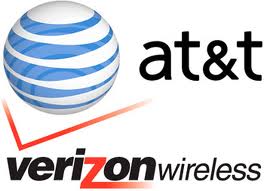 Zain Bahrain began offering mobile broadband packages this week that start at under $32 a month. For video lovers and downloaders, the company charges $53 a month for up to 120GB of usage at speeds up to 25Mbps, equipment included at no extra charge. Customers upgrading to 250GB or 1000GB usage allowances also get much faster performance on the company’s LTE network — up to 100Mbps.
Zain Bahrain began offering mobile broadband packages this week that start at under $32 a month. For video lovers and downloaders, the company charges $53 a month for up to 120GB of usage at speeds up to 25Mbps, equipment included at no extra charge. Customers upgrading to 250GB or 1000GB usage allowances also get much faster performance on the company’s LTE network — up to 100Mbps.